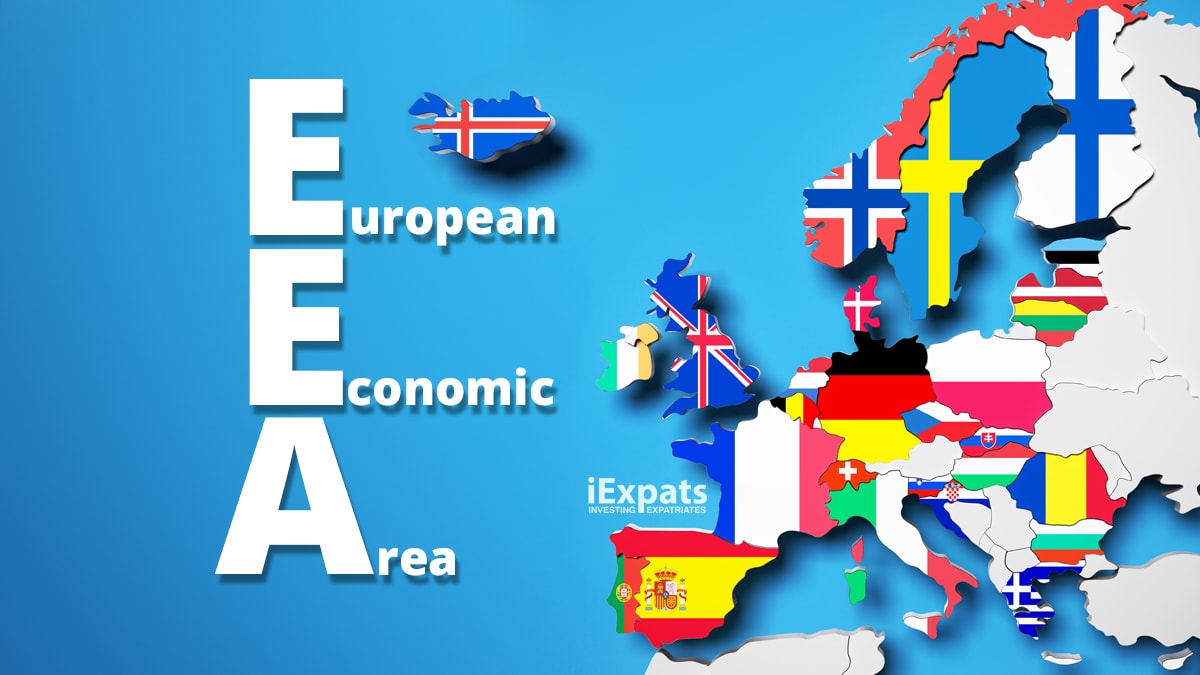The EEA or European Economic Area is a trade and economic zone covering 30 countries in Europe.
The underlying agreement between the countries is that they support the four pillars of the European Union’s internal market – the freedom of movement, goods, capital, people, and services.
Britain stays in the EEA by default as a member state of the European Union during the transition period that ends on December 31, 2020.
Table of contents
What is the European Economic Area?
The European Economic, EEA, Area is a legal framework that allows the remaining states of the old European Free Trade Area (EFTA) to integrate with the European Union.
EFTA was founded in May 1960 by Switzerland, Norway, the United Kingdom, Portugal, Sweden, Denmark, and Austria.
Over the years, the UK, Portugal, Austria, Sweden, and Denmark left while Iceland and Liechtenstein joined.
Although Switzerland belongs to EFTA, the country is not an EEA member.
Visit www.efta.int and www.efta.int/eea for formal information.
EEA Countries
The current members of the EEA include the member states of EFTA and the EU:
- Belgium
- Bulgaria
- Czechia
- Denmark
- Cyprus
- Latvia
- Lithuania
- Luxembourg
- Spain
- France
- Croatia
- Italy
- Poland
- Portugal
- Romania
- Slovenia
- Hungary
- Malta
- Netherlands
- Austria
- Iceland
- Liechtenstein
- Norway
- Slovakia
- Finland
- Sweden
- Germany
- Estonia
- Ireland
- Greece
The United Kingdom stays a member of the EEA until December 31, 2020, when the transition period under the EU Withdrawal Agreement expires.
How The EEA Works
This video explains how EU law becomes EEA law.
What The EEA Agreement Does Not Cover
Although the EEA Agreement offers common standards and rules for all member states, the agreement does not go as far as common foreign and security policies, monetary unions, or harmonising taxes.
The main difference between EU and EEA states is EU members must implement all EU laws, while EEA members must keep common standards and laws relating to the single market.
EEA And The Schengen Area
The Schengen Area is a European zone where members of EEA states can freely travel. The four EEA countries are associate members of the Schengen Area.
The EU countries of Ireland, Romania, Bulgaria, Croatia, and Cyprus are not part of the Schengen Area, although all but Ireland have applied to join.
The Schengen Area is named after the agreement which was signed in the Luxembourg town of Schengen in 1985.
EEA And QROPS Expat Pensions
QROPS are specialist offshore pensions for British expats and foreign workers with UK pension savings.
Unless a retirement saver who wants to transfer a UK pension into a QROPS lives in the EEA, the Overseas Transfer Charge applies unless the scheme is a workplace pension or based in the same country as the expat lives.
The Overseas Transfer Charge is 25% of the transfer value into a QROPS.
In the EEA, the transfer charge does not apply if the retirement saver and QROPS are both based in the EEA, even if they are in different countries.
For example, an expat in Dubai with a QROPS in Malta pays the Overseas Transfer Charge, but an expat in Spain is exempt from the transfer charge because Malta and Spain are both in the EEA.
The UK government has yet to publish guidance on what happens to QROPS and the Overseas Transfer Charge when the EU transition period ended on December 31, 2020.
Recommended article to read if you are planning to retire in Spain.
European Economic Area FAQ
Deciphering the difference between EFTA, the EEA and the EU is confusing as many countries have been in all three. To help, here are the answers to some common questions about the EEA:
No. The UK is no longer an EFTA member.
The UK is in the EEA as an EU member state until December 31, 2020. Then, the UK leaves the EU, and with it, the EEA.
No. EU countries are only joined with the EEA by the EEA Agreement that allows Norway, Iceland, and Liechtenstein access to the Single Market.
All EEA countries have voiced the intention of intending to trade with the UK on similar terms to those currently in place. However, the details will be subject to agreements between the UK, EEA, and EU.
No, Switzerland is not in the EEA but is in EFTA. Instead of joining the EEA through EFTA, Switzerland has separate agreements with the European Union that give access to the single market.
The EEA Agreement allows Iceland, Norway, and Liechtenstein to access the European single market without joining the EU.7
Related Information
Below is a list of related articles you may find of interest.

The flag of Northern Ireland is the Union Flag of the UK, not the tricolour of Ireland.
I live in Spain since 2015
My date of birth is March 28 1944
I pay my taxes in the UK. Most of my family live in the UK
and I visit regularly. Although I live in Spain I don’t need warm weather help but I desperately need air cooling systems.